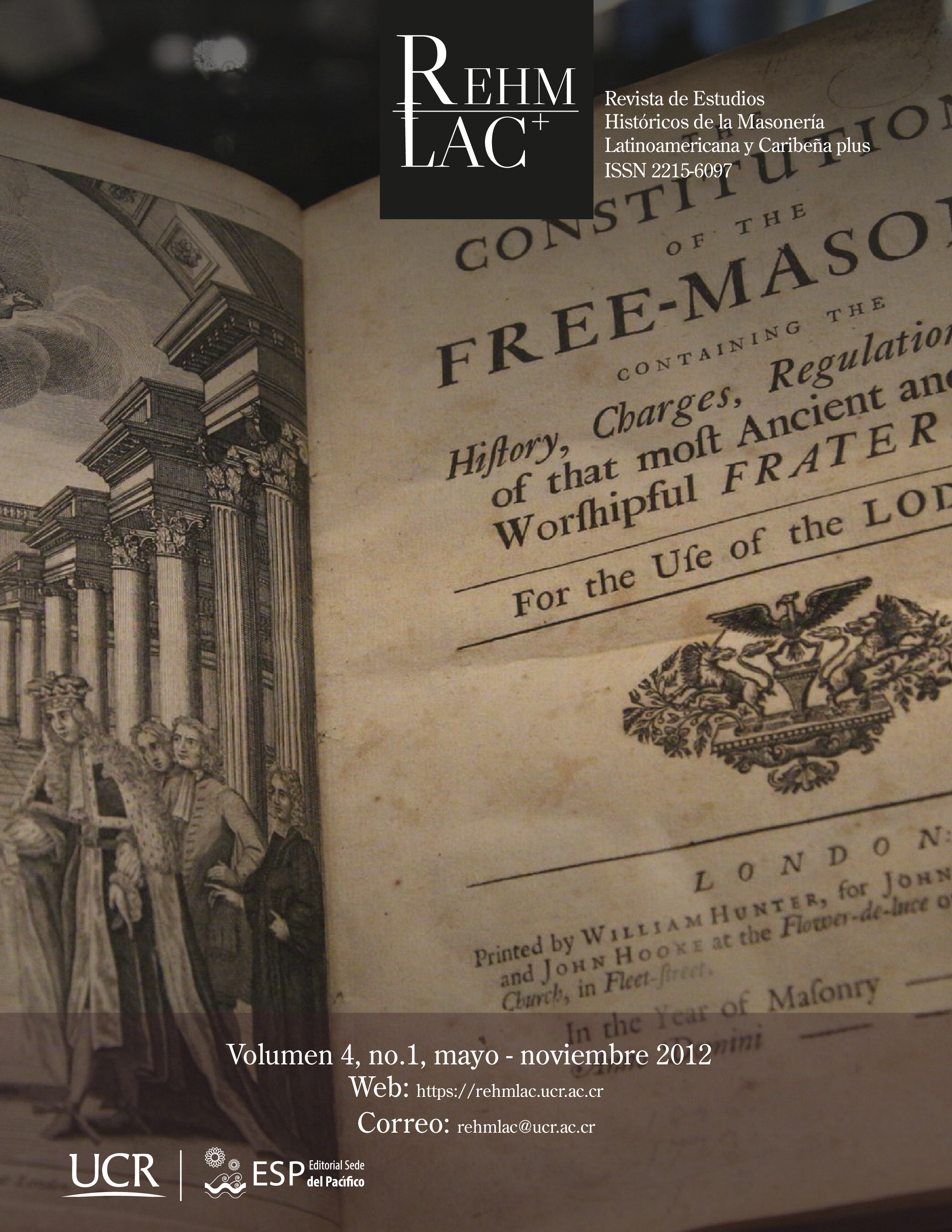Abstract
In recent decades, Freemasonry has been studied by many fields of knowledge. The approach of this institution as an important place for social and political practices has contributed to the understanding of many gears by which power is distributed and manifests itself in society. However, a solid research on the topic of Freemasonry requires a deep knowledge about the complex nature of freemasonry, that is, the fundamentals and principles of this institution and its history. Ignoring such information is incurring the risk of taking Freemasonry as a monolithic and ahistorical institution. In this sense, this article presents the theoretical assumptions underlying the institution of Masonry, providing the theoretical tools necessary for a solid introduction to the study of Freemasonry.
##plugins.facebook.comentarios##

This work is licensed under a Creative Commons Attribution-NonCommercial-ShareAlike 4.0 International License.
Copyright (c) 2009 Revista de Estudios Históricos de la Masonería Latinoamericana y Caribeña
Downloads
Download data is not yet available.

